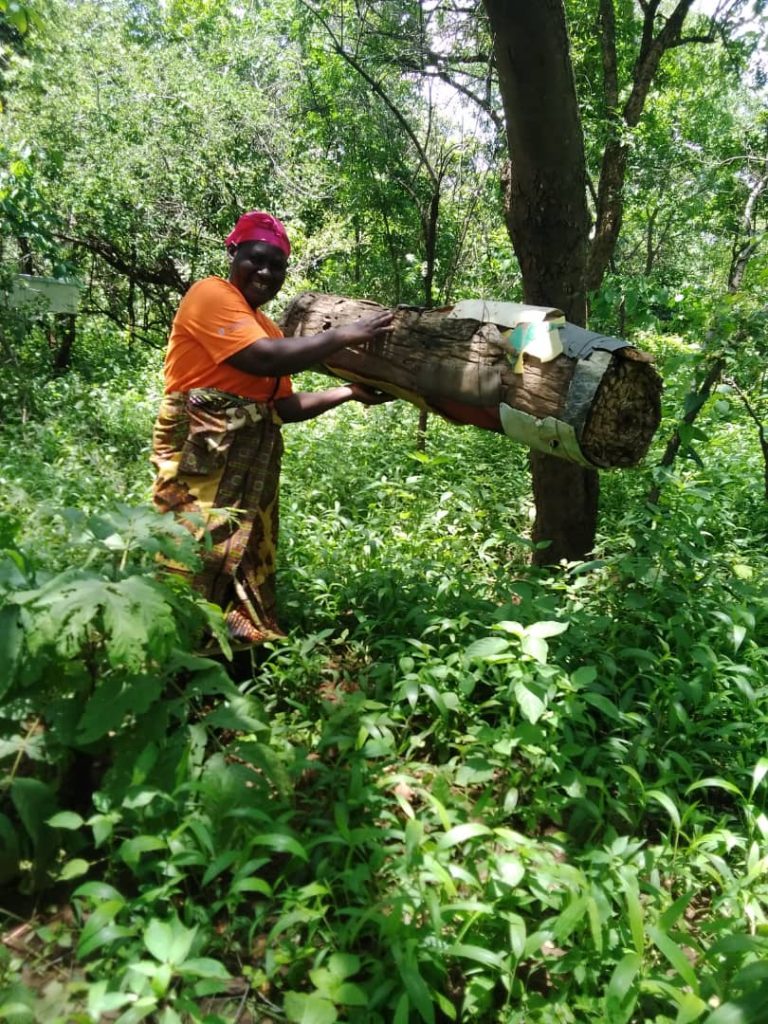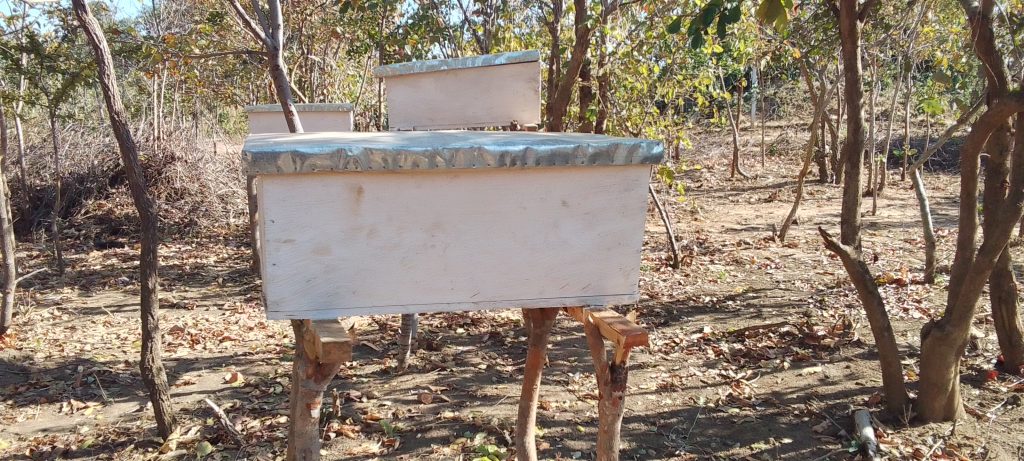Standing under the shade of a mango tree in Nyamphande community, Ms. Scholastica Banda carefully holds one of her old beehives made from tree bark.
“For years, this is how we kept bees,” she explains. “But to make these hives, we had to cut down big trees, removing their bark or trunks. It was destroying our forests little by little. And yet, the honey I harvested was small, often just enough for my family.”

Traditional beekeeping, once the norm, came with hidden costs. The method contributed to deforestation and climate change, while leaving farmers like Scholastica with low yields and no income opportunities.
That changed when Scholastica and her fellow farmers received training and five modern beehives through the beekeeping project. Unlike the bark hives, modern hives are durable, environmentally friendly, and produce higher-quality honey.
“With these new hives, everything is different,” Scholastica says with a smile. “I can harvest more honey, sell it, and even save some for my family. For the first time, I see beekeeping not just as survival, but as a business.”
For Scholastica, the shift from traditional to modern beekeeping is more than just a change in technique—it is a transformation of her livelihood, her environment, and her future.

